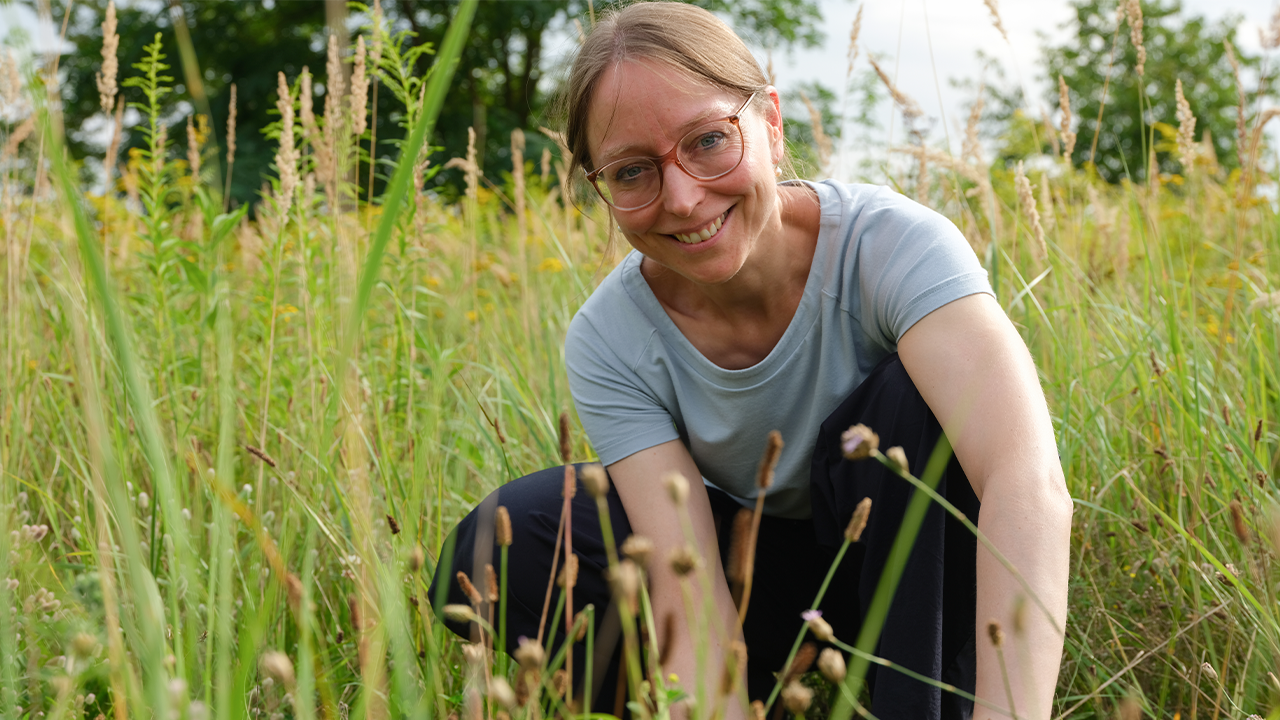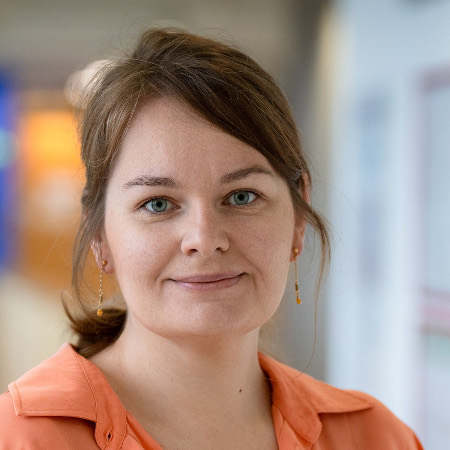ERC: millions in funding for Potsdam symbiosis researcher
Max Planck researcher Caroline Gutjahr from Potsdam has been awarded one of the coveted Consolidator Grants from the European Research Council (ERC) for her research into the coexistence of plants and symbiotic fungi in soil.

An estimated 80 % of all plants live in symbiosis with so-called mycorrhizal fungi, which colonize the roots of plants. This subterranean symbiosis has proven itself over millions of years as it is extremely beneficial for both the plant and the fungus. In order for the symbiosis to come about, the fungi colonize the root and form small tree-like structures in the root cells - the arbuscules. Important nutrients such as phosphate and nitrogen then reach the plant via the fine root system in the soil, the so-called hyphae. In return, the fungus receives carbohydrates and lipids from its host, which the latter obtains from photosynthesis.
EU funds research into plant-fungus interaction
In the course of evolution, the relationship between plants and their fungal partners in arbuscular mycorrhiza has developed into one of the most intensive interactions between living organisms. Caroline Gutjahr has been researching for many years exactly how this interaction between plant and fungus works. We recently introduced the biologist and her field of research in more detail in our portrait series The Biopioneers (only available in German).
The Director at the Max Planck Institute of Molecular Plant Physiology in Potsdam-Golm has now been awarded the coveted Consolidator Grant from the European Research Council (ERC) for her further symbiosis research. This provides top researchers with up to 2 million euros in funding for five years.
Focus on nutrient transport and environmental conditions
As part of the "SymbioticExchange" project, the researcher will investigate the close coexistence and, in particular, the exchange of nutrients between plants and root fungi in the soil in more detail. She wants to clarify how fats, sugars and minerals are transported from one organism to the other, which genes and proteins of plants and fungi serve to transport nutrients and which serve to perceive the partner and how this can be controlled depending on environmental conditions, in particular the availability of nutrients in the soil.
Potential for agriculture
Knowledge of the plant-fungus symbiosis in the soil can also help to make agriculture more sustainable. "If we understand how plants determine whether and how much they exchange with fungi, we may be able to breed crops that work more efficiently with arbuscular mycorrhizal fungi. If we then bring the fungi into the fields together with the plants, the plants could access the nutrients in the soil much better. This could help to save fertilizer and protect the environment and climate," says Caroline Gutjahr.
The European Research Council (ERC) is the most important European funding organization for excellent frontier research. The Consolidator Grants, which are aimed at outstanding scientists in the middle of their careers, are among the most sought-after funding formats. The Consolidator Grant of the Research Council of the European Union has been awarded since 2007 and promotes outstanding research projects in Europe. Together with "SymbioticExchange", a total of 321 Consolidator research projects were funded across Europe this year with a total volume of 657 million euros. In this year's round, the bioeconomy projects of four other researchers in Germany were also awarded the Consolidator Grant.
bb/pg


